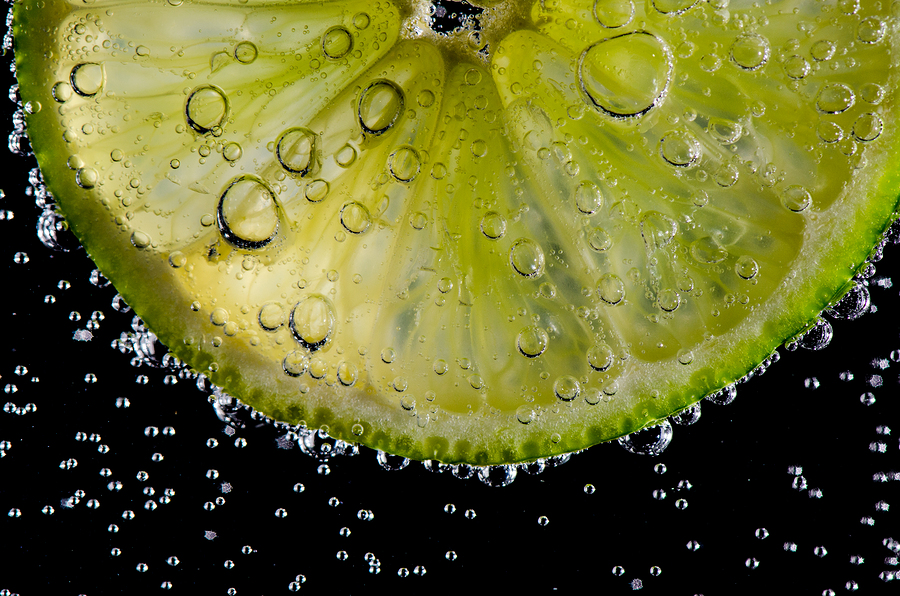Lemon water is claimed to have powerful health and weight loss benefits.
In fact, many celebrities swear by it and there are even diets based entirely on lemons.
But does it live up to the hype?
This article uses scientific evidence to explore the benefits and myths of lemon water.
What is Lemon Water?
Lemon water is simply the juice from lemons mixed with water.
The amount of lemon you use depends on your personal preference, and this drink can be enjoyed either cold or hot.
Some people also choose to add lemon rind, mint leaf or other ingredients.
Lemon water has become a popular morning beverage, since it’s been claimed to help improve your mood, energy levels, immune system and metabolic health.
This is what a glass of lemon water looks like:

Bottom Line: Lemon water is simply water mixed with fresh lemon juice. Additional ingredients can be added.
Lemon Water Nutrition Facts
For the purpose of this article, the definition of lemon water is one glass of water mixed with the juice from half a lemon.
This is the nutrient breakdown for one glass:
- Calories: 9.
- Sugars: Less than 1 gram.
- Vitamin C: 25% of the RDI.
- Folate: 1% of the RDI.
- Potassium: 1% of the RDI.
One glass does not seem to provide a lot of nutrients, but drinking lemon water is a low-calorie and low-sugar beverage that can boost your vitamin C intake.
For comparison, if you replaced half a lemon with half an orange, it would double the calories and sugar in your drink.
Additionally, remember that the exact nutritional value depends on how much lemon juice you add, as well as any other ingredients.
Bottom Line: Lemon water is high in vitamin C, relative to its calorie and sugar content. It also contains trace amounts of folate and potassium.
Lemon Water Contains Antioxidants
Lemon water contains other beneficial substances, and is a source of plant compounds called flavonoids.
Many have antioxidant properties that appear to help protect your cells from damage.
Flavonoids from citrus fruits are often linked with benefits for blood circulation, insulin sensitivity and other aspects of metabolic health.
Lemon flavonoids also have the potential to reduce oxidative stress and damage, at least in rats.
All that said, there are no human studies to support these findings, so they may not be as useful in real life.
Bottom Line: Lemon water contains compounds that may protect your cells and improve metabolic health. However, human studies are needed.
Lemon Water May Help Treat Kidney Stones
Kidney stones are solid mineral formations that collect in the kidneys.
The most common type is made of a substance called calcium oxalate, and is typically treated with a compound called citrate.
Increasing the amount of citrate in your urine is thought to prevent calcium from binding with other compounds and forming stones.
In short, citrate restores the urine’s ability to prevent kidney stone formation.
Lemon water contains high amounts of citrate, and numerous human studies have found it can successfully help treat kidney stones.
It appears to be most effective when used alongside potassium citrate, the supplement form of citrate. However, lemon water may also be a good alternative for those who don’t tolerate potassium citrate as a first-line treatment.
Bottom Line: Studies show that lemon water can help treat kidney stones. It appears most effective alongside conventional therapy, but may also be a useful alternative treatment.
Lemon Water Has The Benefits of Regular Water
Lemon water is water with a bit of lemon added, which means it has all the benefits of regular water.
Drinking plenty of water is known to have benefits for:
- Weight loss: Increases feelings of fullness and boosts metabolism slightly, which can help with weight loss.
- Mental health: Optimizes mood and memory.
- Digestive health: Helps relieve constipation.
- Exercise performance: Improves athletic performance.
Bottom Line: Drinking enough water has many health benefits. It can help you lose weight, feel great and improve your athletic performance.
Common Myths About Lemon Water and Health
There are many additional health claims surrounding lemon water, but most are not supported by any scientific evidence.
In fact, some have even been disproved. Below are 6 of the most common myths.
Myth 1: The Fiber in it Helps You Lose Weight
Lemons contain a type of fiber called pectin, which helps reduce your appetite and calorie intake.
However, lemon water is basically filtered, heavily diluted lemon juice, which leaves it with only trace amounts of pectin. Even a whole lemon only contains 2 grams of fiber in total.
There is no evidence that lemon water has any more benefits for weight loss than plain water.
Myth 2: It Alkalizes Your Body
According to proponents of the alkaline diet, foods leave an “ash” in your system that influences the pH of your body — how acidic or alkaline it becomes.
Lemon water is said to be alkalizing. However, neither the pH of your blood nor cells can be altered by what you eat.
Myth 3: It Fights Cancer
This claim emerged from the alkaline diet myth and is built on the premise that cancer cells cannot thrive in an alkaline environment.
While cancer cells do prefer the cells around them to be acidic, studies show they can grow in alkaline environments as well. Also, cancer cells create their own acidic environment, and eating alkalizing food doesn’t stop it.
Myth 4: It Cleanses and Detoxes
Water helps eliminate waste from your body through urination and healthy bowel movements. However, nothing in lemon water improves this process.
In fact, most claims that foods or beverages cleanse or detoxify your organs are simply untrue.
Myth 5: It Raises Your IQ
Drinking water — lemon-flavored or otherwise — may help you feel more focused in the morning, but it cannot increase intelligence.
Myth 6: It Has Natural Diuretic Effects
This may be true to a small extent, but it’s so misleading that it’s worth mentioning.
Any food that contains potassium can potentially increase urine output — that means virtually all fruits, vegetables, meat and dairy products.
Additionally, the more water you drink, the more you will urinate.
Bottom Line: The majority of the health claims are speculative and exaggerated. In some cases they have been proven to be false.
Does it Have Any Harmful Effects?
Lemon water is perfectly safe to drink.
However, the acid in lemons can damage your tooth enamel over time, which makes your teeth more prone to cavities.
You can manage this easily by drinking lemon water with a straw whenever possible, to avoid contact with your teeth.
Also, you should rinse your mouth with water afterwards. However, it is best to wait an hour before brushing your teeth. Brushing while your tooth enamel is an an acid-softened state can lead to damage.
If you’re taking the lemon water with breakfast, then it’s a good idea to brush your teeth before breakfast.
Bottom Line: Lemon water is safe to consume. However, it may damage your tooth enamel if you drink if often.
Does the Temperature of Lemon Water Matter?
The best temperature to drink lemon water is a highly debated topic.
For example, some claim cold water helps burn extra calories. Others believe warm water helps improve digestive health.
There is very little research to support either side, and it’s highly unlikely the temperature makes any meaningful difference.
Therefore, it simply comes down to what you feel like at the time.
Bottom Line: There is no strong evidence showing that the water is best consumed either hot or cold. Choose the temperature you enjoy most.
How to Make Your Own Lemon Water
Most recipes suggest using the juice from half a lemon mixed with a glass of water. You can tweak the amounts from there or add other ingredients.
Take Home Message
Lemon water is a healthy drink that can add a good amount of vitamin C to your diet.
It’s a fantastic, flavorful alternative to plain water that has several health benefits.
However, if you already eat lots of fruits and vegetables and drink plenty of fluids, then lemon water will be of no nutritional benefit.
You should drink it for the taste rather than the health benefits.
*Article originally appeared on Authority Nutrition.












